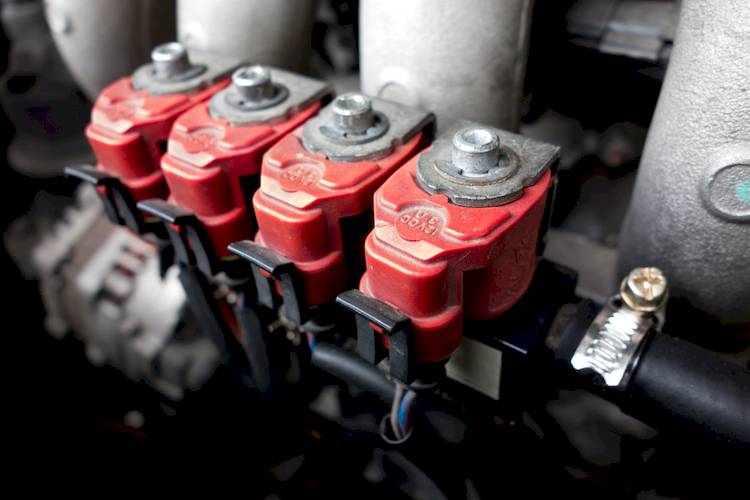

The fuel rail sensor, commonly referred to as the fuel pressure sensor, is an engine management component that is commonly found on diesel, and some gasoline injected vehicles. It is a part of vehicle’s fuel system and designed to monitor the fuel pressure that is present at the fuel rail. The sensor sends this signal to the computer, which then uses it to make adjustments to the vehicle’s fuel and timing. When the sensor has an issue it can cause problems with the performance of the vehicle. Usually a bad or failing fuel rail sensor will produce a few symptoms that can alert the driver to a potential issue.
1. Hard starting
One of the first symptoms of a potential problem with the fuel rail sensor is hard starting. A faulty fuel rail sensor may send an inaccurate signal to the computer which may cause the engine to experience hard starting. The engine may take a few cranks longer than normal to start and in more serious cases may not start at all.
2. Decrease in power, acceleration and fuel efficiency
Another symptom of a potential problem with the vehicle’s fuel rail sensor is engine performance issues. A faulty rail sensor may upset the air fuel ratio and cause the vehicle to experience performance issues such as a decrease in power, acceleration, and fuel efficiency, and in some cases may even experience stalling.
3. Check Engine Light comes on
An illuminated Check Engine Light is another symptom of a potential problem with the fuel rail sensor. If the engine computer detects an issue with the fuel rail sensor signal or circuit, it will set off the Check Engine Light to notify the driver of the issue. The Check Engine Light can also be activated by a wide variety of other issues, so having the computer scanned for trouble codes is highly recommended.
While fuel rail sensors are not found on all vehicles, to the ones they are found on, they play an important role in engine management functions. If your vehicle is displaying any of the symptoms above, or you suspect that your fuel rail sensor may be having an issue, have the vehicle diagnosed by a professional technician, such as one from YourMechanic, to determine if the sensor should be replaced.



